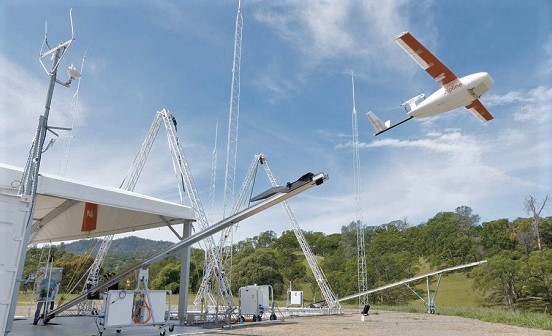Zipline, the company in charge of the medical drones project in Ghana, has successfully completed a number of test flights in readiness for the transportation of samples taken from various parts of the country for the coronavirus disease (COVID-19) tests by drones.
The samples collected from at risk persons identified through contact tracing are tested mainly at the Noguchi Memorial Institute for Medical Research in Accra and the Kumasi Centre for Collaborative Research in Tropical Medicine (KCCR), affiliated to the Kwame Nkrumah University of Science and Technology (KNUST) in Kumasi.
The test flights follow route approvals by the Ghana Civil Aviation Authority (GCAA) to enable the company to fly its drones on the various routes selected for the exercise.
Presently, the company is awaiting a final green light from the Ministry of Health to enable the exercise to start.
A highly placed source at Zipline said: “Successful test flights have been done in Kumasi to KCCR on Thursday with a few more being done to Noguchi yesterday. We are awaiting the final go-ahead to receive the COVID-19 samples from our bases in Omenako in the Eastern Region and Mampong in the Ashanti Region for onward delivery to Noguchi and KCCR in the coming hours”.
The source said up to six drones would be dedicated for the exercise and noted that when necessary, it would be scaled up to ensure that there were no breaks in the operation.
It said the move by the government was another milestone to get the blood samples from the various contact tracing points to reach the selected testing centres in record time to facilitate the process.
As to whether the new assignment will not affect the initial purpose for which the company was set up, the source replied in the negative, saying “we are ready for any project we sign on to and we will deliver to the best of our ability.”
Ghana rated high
This new initiative comes at a time when the country has been proclaimed as the second country in Africa and 14th in the world to be conducting aggressive testing of people suspected to have contracted COVID-19 in its quest to halt the spread within the shortest possible time, according to the Minister of Information, Mr Kojo Oppong Nkrumah.
Present case report
Two weeks into the institution of enhanced surveillance, restriction of movement and continuous public education to prevent the spread of COVID-19, 50,719 samples have been tested with 641 being positive for COVID-19, as of April 14, this year.
Out of the positive cases, 17 have been treated, reverted to negative on repeat tests and discharged. Furthermore, 66 have tested negative once and awaiting second tests.
This brings together a total of 83 cases that have been recovered or discharged.
So far, 548 cases have been categorised as mild disease and are on treatment, two are categorised as moderate to severe cases, none in critical state currently and eight have died.
The five new cases were recorded in the following locations; one from the Adentan Municipality and two each from Ayawaso East and Ayawaso Central municipalities.
With the exception of one of the cases from Ayawaso East, all the new cases are asymptomatic.
Regions that have reported cases are Greater Accra, Ashanti, Central, Eastern, Western, Volta, Northern, North East, Upper East and Upper West.
Upper East
Meanwhile, COVID-19 cases in the Upper East Region have risen from four to eight as of last Thursday.
A statement signed by the Regional Director of the Ghana Health Service, Dr Winfred Ofosu, indicated that the other three new cases were contacts of the first confirmed case of COVID-19 the region reported on April 3, this year.
It added that “for the first time, one of the cases was detected through routine surveillance in the Bawku municipality. Unfortunately, the case in Bawku passed on before the laboratory results were received from the Kumasi Centre for Collaborative Research.”
It further explained that “the burial of the deceased was appropriately supervised as it was a suspected case”.
Checks by our correspondent, Vincent Amenuveve, indicate that the patient died on April 8, this year, a day after the sample was taken for COVID-19 test at the KCCR.
According to the statement, the laboratory feedback was received last Thursday.
Graphic.com
MORE STORIES:
- Senegalese President declares today a public holiday to celebrate AFCON win
- Fall in Love with Love at Banyan Tree Ilha Caldeira, Mozambique
- Ghana: The story of a coconut company that exports throughout the world
- Axim Government Hospital shuts two facilities to shoot Hollywood movie; residents cry foul
- Honoring Archbishop Desmond Tutu, An Advocate and Believer in Humanity

Putting a spotlight on business, inventions, leadership, influencers, women, technology, and lifestyle. We inspire, educate, celebrate success and reward resilience.















